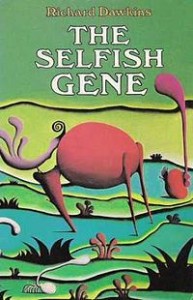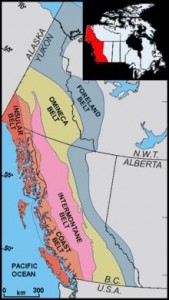Why Canada is failing to protect itself from GMO
I have been thinking of writing a few eBooks on the GMO, vaccine and stuff – and have decided to dip my toe into it within the next month. This will not be the first time I created an eBook, but it would be the first time it will be put up on the web, for purchase by prospective readers. Price – 1 dollar, or perhaps 99 cents, if that is possible.
Why ? Well, the trend these days is to have printed matter no more printed but available online. Also, this brings down cost of publication, and removes the need to have a middleman (publishing house), while, properly advertised (think Global) – it can have wide reach – from pole to pole and from pillar to post. Hahh !
Corporate encroachment into public health through corrupt politicians has been an engaging topic – but I have not had much chance to discuss how these could be turned into eBook this with anybody, barring perhaps Shiv Chopra.
There are lots of people that write important articles – Debal Deb, Jagannath Chatterjee and Devinder Sharma of India come to mind. There are many others across the world. Or one could consider the case of MP Alex Atamanenko of BC. He is serving his third term. He has been a friend of the farmers, or sustainable living, and of resisting degradation to environment and against encroachment of GMOs. He has issued bill after bill to try and stop the GMO juggernaut. But the bills don’t pass because not all MPs share his principles, nor ability to rise above parti politics and corporate pressure and to judge issues on their own merit, and keep focus on what serves the constituent’s best interest.
And now, Alex is retiring from politics. He did not make a public comment on the real reason for his retirement. Age of course is a factor. But, I suspect, he lost heart because of the level of corruption that has entered politics.
We can draw a lesson here – good politicians are either leaving, or converting to bad politicians. And this is Canada – not a Mickey mouse country five miles long.
You can consider David Suzuki’s comments on the Harper Government. You could discuss issues till the cows come home. But instead of discussing, I though tI would place them on the web and let the experience teach me if it was a good idea, or if the format, the content, the length, language or tone etc – needs to be altered for higher penetration and sale.
There are, of course, lots of people with lots of opinion on GMO. Take mainstream media – every Tom Dick and Harry, as well as every other name in between, are busy writing about it, whether they understand the wider effect of the issue or not. But mainstream writers have one major advantage and a major drawback. The advantage is that they get corporate funding. The disadvantage ? The same. I, on the other had stand on the opposite end – with a disadvantage (no corporate fund) and an advantage – free from the clutches of corporate diktat.
Mainstream writers do it for their job – so they can and do write crap. I do it because I care for the planet. OK, so the mainstream is taken care of. But how about others that also write on passion?
Look, I am fairly well versed on the eBook and Audio Book scene. I am a heavy consumer of both. There are NO good eBooks or audio Books on GMO, or on sustainable agriculture, or the menace behind biotech promoted vaccines, or the biotic control of the medical practices. There are a small number of audio books out there – such as “A town that food saved”. But these are like needles in a haystack. Not enough by any count.
Besides, not many can write outside of their comfort zone of a single nation, a province, a continent, or a sector. Very few have a global perspective on food security or agribusiness and the element of exploitation that goes with it. People like Vandana Shiva are a rarity. But even Vandana, who I have spoken with at length once to create an audio podcast – does not have a single audio or eBook.
Besides – Vandana writes what I consider to be a more generic and single minded attack on the biotech corporations, along with a necessary promotion of seed ownership and supporting local farmers. But she does not dwell on the unpopular task of why the resistance to GMO is having such a hard time. That the biotech industry is steamrolling across the planet is known to any serious observer. But why is that happening, especially in the west where “democracy” is supposed to be well entrenched ? Why ? The clue must point to a fault in the functioning of that democracy. The fault, ultimately, must lie at the feet of the people.
Monsanto may not be as big a culprit for hijacking the worlds agriculture, as the common man is, for allowing Monsanto to get away with it.
But, the common man is today hard to define – it is not a homogenous body, even in the North American continent. I would rather look at the groups that exist just above the lowest strata – various organizations whose projected goal is to protect the people, from such abuse of power from the big. These organizations, both public funded and private – are failing in their primary duty. It makes one think why and how these organizations – Government departments at federal, provincial and municipal level, are failing in their duty. How private NGOs and various sustainable groups are failing in their duty.
Nobody admits they are failing – but then none of them produce any record, any analysis, of what the situation was, say with regard to GMO, last year and how it is this year, and thus, has the situation changed for the better or the worse. This analysis should be simple to make, and by that, one should be able draw a conclusion on if these organizations are making any meaningful difference, or not. To me, pretty much every organization within Canada that claims to work towards safeguarding Canadian food, health and environment, is failing and it know it is failing.
And yet, business as usual is the norm. The NGOs and groupings keep passing posters, pamphlets and postcards, they keep asking folks to sign petitions. They keep asking for volunteers and for donations. And while all these noble tasks are underway, Canadian food and health is literally being raped, by biotech corporations that dictate terms with the politicians.
Some even believe that kicking out Stephen Harper will change things for the better. They spend their energy to that end. I shall leave it to you to decide if they are making any headway.
Folks in the US thought kicking out the Republicans and bringing in Obama, will solve all their problems. Even the Nobel committee did the extraordinary thing of awarding the Nobel peace prize to Obama, not because of his achievements, but merely on the promise he made, and subsequently failed to follow through.
Changing the political head did not make a difference in the past, and my guess is – it will not make much of a difference if the current leaders are booted out. These are not leaders – they are just masks of leaders, like puppets. One needs to think who the puppeteers are.
Stephen Harper is not why Canada is being massacred with GMO. It is not about Conservatives, or liberals or NDP. It is not about CBAN or The Council of Canadians, or Vandana Shiva’s Navdanya or David Suzuki’s foundation or GE free BC. None of them are going to make any difference while all of them will ask you for donations and support.
Canadians are scared to face truth. Americans are scared to face truth. People like Vandana, or David, due respect to their great achievements, who have become public icons, make lot of noise noise in an already noisy place. A thousand Vanadnas and a thousand Davids will make no difference except increase the din.
And that is where the crux, in my thinking, lies. It is the Canadian public that have failed themselves.
My writings will dwell on these. Of course, I could be wrong. I could be an opinionated so and so. But I intend to write all that down and place it on the web as essays on an eBook. This is going to be perhaps the first chapter of the book, or the prolog. It took me 35 minutes to write. I usually dislike checking spelling or grammar but would do so before the eBook is put online in a store. Spelling and grammar are important, but not more important than the message itself.
We are crossing the ’T’s and dotting the ‘i;s to death, so our literature about the dangers of GMO are linguistically perfect, and functionally useless on the street and deserving to stay in a library for ever.
I intend to collate a few such writings together and put up the first eBook on the web, and try charging a dollar for it, and tell folks I know to help sell a few, even if it criticizes them. They in turn are free to call me an opinionated son of a gun or whatever. I had already sent out a sample of this writing on an email to one of my group lists. It had some 400 recipients from around the world. about 25 responded within a few hours – mostly encouraging. One of the briefest but cutest support note came from Felix Padel. Some day, I shall have to write something about that mystic Englishman that made India his home. Meanwhile my friend Rose Stevens from Manitoba, who I sometimes refer to as the Fire-Eating-Woman, promises to be the first to buy the eBook and to promote it. Shiv Chopra sent a note – calling this an inexpensive gem, and the idea very well worth exploring. Each of these people and the others who respond, have their own followings, their own circles – word can spread – about an opinionated so and so writing dollar novels as eBooks, where the hero and the heroine are undefined, but the villains are in sharp focus.
The whole proceeds of the sale are not to go in my pocket. My idea at the moment is to split the proceeds half and half, with half going to my own upkeep and the other half going towards charity work relating to resisting GMO in unconventional ways. What the ways are – I have not the faintest clue at this time, except that it has to be legal, and grassroots, and different from whatever folks are doing right now. Whatever everyone is doing now – is not working. More of the same will not solve anything. SO this is my first chapter, or rather – the prolog.
How do you like it so far ? Tony Mitra
tony.mitra@gmail.com




